Current Fellows
Jacob Airas (Mentor: Robin Stanley, Ph.D.)
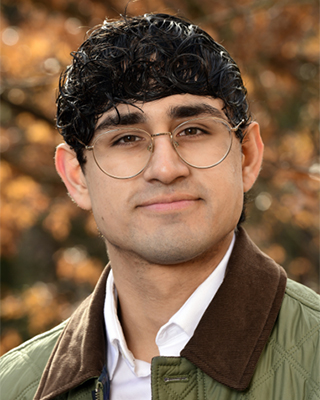
Jacob Airas is a post-baccalaureate part of the NIEHS Scientific Director’s Traineeship for Inclusion, Diversity, and Equity (STrIDE) Program. Jacob started his journey in science back in 2018, embarking in the University of Richmond’s URISE program for underrepresented students with a passion for STEM, inclusion, and diversity. To continue these passions, at Richmond, he pursued a major in Biochemistry & Molecular Biology, and a minor in healthcare studies. Here at Richmond, he developed his passion for science, doing summer research across his four years, and continued this passion for science and research at the NIEHS. He is currently a member of the Nucleolar Integrity Group in the Signal Transduction branch at the NIEHS aiming to investigate how molecular machines involved in ribosome biogenesis are regulated. The upshot of this work could be a contribution to helping reduce specific types of cancers, and ribosomopathies. With this science, healthcare studies, and research background, Jacob is pursuing a career in medicine, to become a physician who utilizes this multifaceted background to push the field of medicine to its most cutting-edge potential and to help reduce health disparities through his work in underserved communities.
Sarah Aleman (Mentor: Dondrae Coble, D.V.M.)
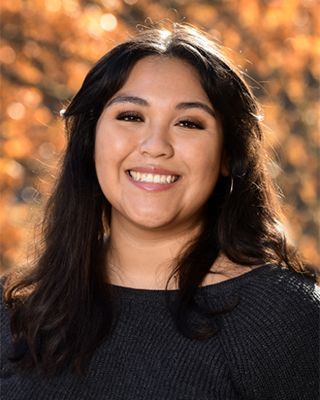
Sarah Aleman is from Millsboro, Delaware, a rural area where she discovered a love for science through her high school biology teacher. She is a first-generation college student who earned her B.A. in Molecular Biology with a minor in Chemistry from McDaniel College in Westminster, Maryland. At McDaniel College Sarah was a very involved student; she was both Secretary and Vice President of McDaniel College’s Hispano LatinX Alliance (HLA), President of the McDaniel College chapter of the League of United Latin American Citizens (LULAC), an active member of Beta Latinx Beta Biological Honors Society, as well as participated in both American Sign Language club and McDaniel College Best Buddies. While in college she uncovered a love for research through opportunities at McDaniel College as well as through the National Science Foundation’s Research Experiences for Undergraduate Students (NSF REU). Sarah joined NIEHS as a post baccalaureate in 2023 as a part of the Single Cell Dynamics Group led by Joseph Rodriguez, Ph.D. Her research focuses on interactions between enhancers & promoters during transcription in estrogen receptor positive breast cancer. She is interested in pursuing a D.V.M./Ph.D. following her time at NIEHS. Sarah is proud to be a STrIDE fellow and represent her LatinX and Indigenous identities.
Meklit Daniel (Mentor: Alexandra White, Ph.D., M.S.P.H.)
Meklit Daniel is a NIEHS Postbaccalaureate Intramural Research Training Award Fellow from Jacksonville, Florida. She received a BA in Anthropology from Williams College before completing two MPhils at the University of Cambridge (Health, Medicine, & Society and Population Health Sciences). As a fellow in the Epidemiology Branch’s Environment & Cancer Epidemiology research group, she is broadly interested in understanding how ambient air pollution impacts the risk of women’s cancers, especially among socially marginalized populations.
Abra Granger (Mentor: Roel Schaaper, Ph.D.)
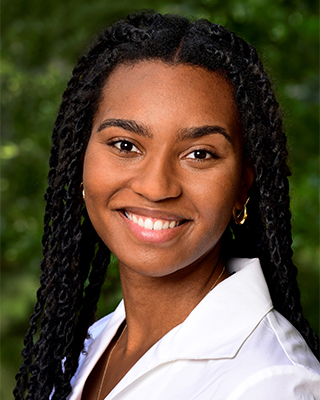
Abra Granger graduated from the University of Richmond in 2021 with a degree in Biochemistry and Molecular Biology and a minor in Latin American and Iberian Studies. Recruited as a scholarship athlete, Abra participated in D1 field hockey all four years at the University of Richmond. During her undergraduate studies, she conducted four years of computational chemistry research resulting in her first publication. Presently, Abra is a 3rd year IRTA postbac in Roel Schaaper’s lab and collaborating with Lalith Perera, Ph.D. on a project with emphasis on Molecular Dynamics. Her project utilizes computational methods to investigate the structural change leading to increased catalytic capacity of a mutant dGTPase enzyme as compared to the WT. Her presentations emanating from this work have resulted in consecutive awards - NIH Postbac Poster Day Outstanding Poster Awards in 2022 and 2023. Additionally, during her time as a postbac fellow, she has served as representative for the Network of Fellows from Underrepresented Racial and Ethnic Backgrounds (NFURE) creating a space for fellows of minority backgrounds to share perspectives and learn from invited guest speakers.
After nominating Vivian Pinn, M.D. as our NIEHS Spirit Lecture speaker, in March of 2023, Abra had the honor of introducing Pinn in a hybrid lecture broadcast across all NIH campuses. Abra now serves as the fellow representative for the NIEHS Spirit Lecture. Currently, she is interviewing for M.D./Ph.D. programs with the goal of becoming a physician-scientist focused on women’s health, especially in service to minoritized populations. From her time at the NIEHS, Abra is grateful to have gained invaluable exposure to research, leadership skills and opportunities, a community of passionate scientists, and outstanding mentorship.
Hope Hawthorne (Mentor: Traci Hall, Ph.D.)
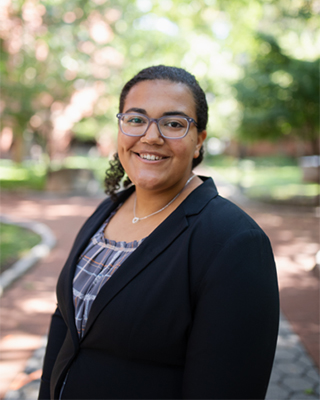
Hope Hawthorne was born and raised in Winchester, VA. She earned a B.A. from the University of Pennsylvania and was a first-generation college graduate. At the University of Pennsylvania, she was passionate about promoting diversity in STEM and founded the Black Scientist Collective. In June 2023, she joined the NIEHS as an IRTA Postbaccalaureate Fellow in Hall’s lab. She studies RNA-binding proteins that maintain germline stem cells in C. elegans.
Abigail Kitakule (Mentor: Humphrey Yao, Ph.D.)

Abigail Kitakule, a first-generation American with Ugandan roots, was born and raised in Louisiana. She received her B.S. in Biology with minors in Chemistry and French from Belmont University in Nashville, Tennessee. In 2022, she started at the NIEHS as a postbaccalaureate fellow in the Reproductive & Developmental Biology Laboratory in Yao’s lab. Currently, she is using mouse models to investigate the different cell populations involved in the development of the female urethra, providing valuable insights into the congenital anomaly Hypospadias. Abigail aspires to contribute to advancements in our understanding of reproductive biology for the betterment of healthcare.
Dongwon Lee (Mentor: Marcos Morgan, Ph.D.)
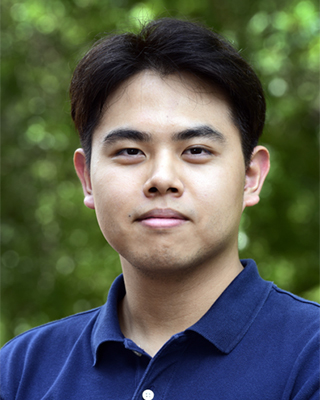
Dongwon Lee was born in Seoul, South Korea and raised in Madison, Alabama. He received his B.S. in Biology and Neuroscience at Duke University. As a previous summer student and NSCP scholar in the Male Reproduction and RNA Biology Group, he studied the relationship of the 3’ UTR and the poly(A) tail during spermatogenesis and the role of poly(A) tail dynamics in TOP transcripts during neuronal differentiation. In 2023, he joined as a postbaccalaureate fellow where his research currently focuses on developing a bottom-up, bioinformatics approach to detect the contributions of 3’ UTR elements. His lab primarily aims to understand the role of post-transcriptional gene regulation in the context of cell differentiation and environmental stressors.
Amir Lueth (Mentor: Kelly Ferguson, Ph.D., M.P.H.)
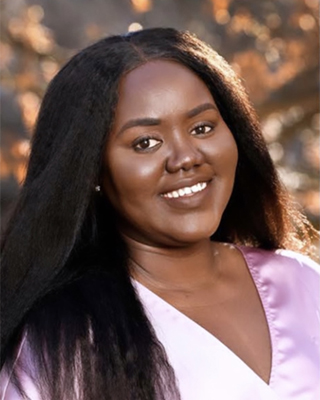
Amir Lueth, Ph.D., is of South-Sudanese origins who grew up in Erie, PA. She obtained her BA from Clarion University and her MPH from University of Toledo. She received her Ph.D. in Population Health Sciences with an emphasis in clinical translational epidemiology from the University of Utah. She is currently a postdoctoral fellow in the Early Life Perinatal Epidemiology Group at the NIEHS. She studied chronic stress biomarkers, i.e., Allostatic Load and how they affect adverse pregnancy outcomes (i.e., preterm birth, stillbirth, small for gestational age, and hypertensive disorders of pregnancy). Currently her research focuses on how chemical exposures (i.e., organophosphates esters, phthalates) during pregnancy affect preeclampsia and blood pressure and fetal growth.
Jasmine Mack (Mentor: Alison Motsinger-Reif, Ph.D.)
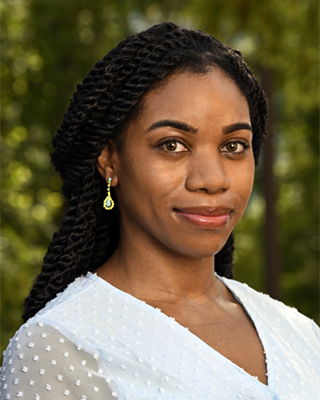
Jasmine Mack is a third-year Ph.D. candidate in the NIH-Oxford-Cambridge Scholars Program, and an American Society of Human Genetics Scholar, where she trains between Professor Gordon Smith’s group at the University of Cambridge Department of Obstetrics and Gynaecology, and in the NIEHS Biostatistics and Computational Biology branch in Motsinger-Reif’s research group. Jasmine’s research investigates genetic and environmental factors, broadly multi-omics, related to adverse pregnancy outcomes and autoimmune diseases, and how these factors may differ across genetic similarity groups. She is also interested in identifying efficient statistical methods for studying multi-ancestral and admixed populations. As an early-career researcher, Jasmine advocates for equitable representation of historically excluded people as researchers, as well as participants in research studies focused on women’s health. Jasmine is a recipient of the Office of Women’s Health Research Autoimmune Disease Fellowship Award, and a recipient of the Young Investigator’s Award from the International Society for the Study of Hypertension in Pregnancy.
Rabina Mainali (Mentor: Xiaoling Li, Ph.D.)

Rabina Mainali, Ph.D., is a first-generation college graduate, born to Bhutanese refugees and raised in the US. She earned her B.S. in Biochemistry and Ph.D. in Pharmacology and Physiology from Salem College and Wake Forest University, respectively. Subsequently, she embarked on her career at NIEHS as a STrIDE Postdoctoral Fellow, working under the guidance of Li in the Signal Transduction Laboratory. During her graduate studies, Rabina delved into understanding the role of non-immune organs in inflammation, dedicating a significant portion of her research to investigating the functions of the immunometabolite itaconates in the liver during sepsis.
With a profound interest in cellular metabolism, Rabina, now a postdoctoral researcher, channels her efforts towards exploring the role of deamidated NAD synthesis in the regulation of cellular metabolism, with a specific focus on the liver.
Emily McGlade (Mentor: Carmen Williams, M.D., Ph.D.)
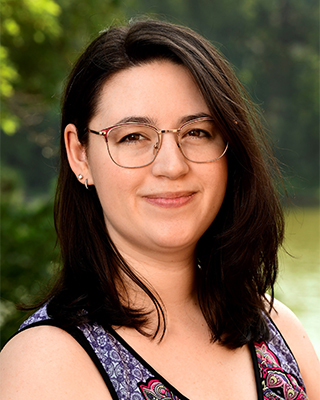
Emily McGlade, Ph.D., grew up in Southern California. She received her B.S. in Cell, Molecular and Developmental Biology from University of California-Riverside and Ph.D in Molecular Biosciences from Washington State University. She then moved with her thesis advisor to University of Missouri-Columbia where she served as a postdoctoral fellow for one year. Her project focused on the roles of the classical estrogen receptor (ESR1) and progesterone receptor (PGR) in regulating distinct oviduct epithelial cell populations during pregnancy establishment. In 2023, she joined the Williams Lab in the Reproductive Medicine Group at NIEHS. She is currently studying the effects of oxidative stress on calcium patterning in mouse eggs during fertilization to better understand how environment stressors may influence the long-term health of developing embryos.
Jamie Murkey (Mentor: Chandra Jackson, Ph.D., M.S.)
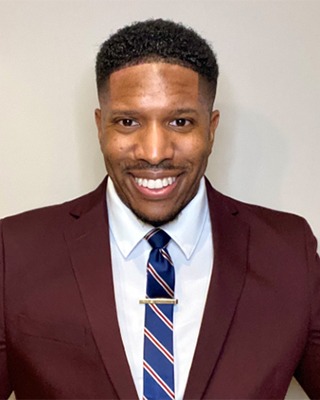
Jamie A. Murkey, Ph.D., M.P.H. was born and raised in St. Louis, Missouri. He obtained a B.S. in Nutritional Science from Pepperdine University, a MPH in Health Policy and Leadership from Loma Linda University and a Ph.D. in Epidemiology from New York University. In 2022, he joined the Epidemiology Branch of the National Institute of Environmental Health Sciences as a Social and Environmental Epidemiology Postdoctoral Fellow under the direction of Chandra Jackson, Ph.D., M.S., where he has investigated ways in which social and environmental exposures contribute to racial/ethnic inequities in cardiovascular disease risk and outcomes.
Prior to his postdoctoral experience, he investigated aging biomarkers as potential mediating pathways in the relationship between racial/ethnic discrimination and cardiovascular disease attributed mortality. Additionally, as a predoctoral National Heart, Lung, and Blood Institute BioData Catalyst Fellow, Murkey developed a shareable, cloud-based telomere estimation workflow called TeleGen, which was used to ascertain a robust telomere length sample using Multi-Ethnic Study of Atherosclerosis participant whole-genome sequencing (WGS) data. He was recently selected as a 2024 recipient of the William G. Coleman Jr., Ph.D., Minority Health and Health Disparities Research Innovation Award, where he will investigate associations between multiple chemical and non-chemical stressors in relation to premature biological aging.
Kemi Ogunsina (Mentor: Dale Sandler, Ph.D.)
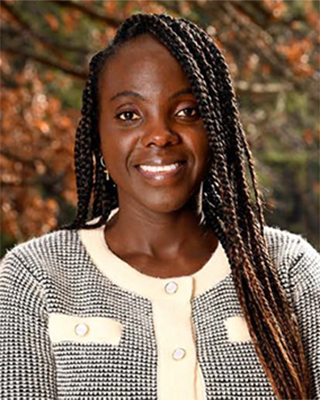
Kemi Ogunsina is a medical doctor from Nigeria. She received her MPH from the University of Alabama in Birmingham, and a Ph.D. in Epidemiology from the University of Miami, Florida. She joined the National Institute of Environmental Health Sciences (NIEHS) as a Postdoctoral Fellow in 2022. Her research examines the associations between environmental exposures, specifically endocrine disrupting chemicals and hormone related diseases. She is also interested in women’s health and health disparities research. Since coming to NIEHS, she has initiated research on examining the excess burden of fibroids among Black women, and this has led to her works on the association of talc and douche use, and hair straightener use with fibroids. Prior to joining NIEHS, she worked as a graduate research assistant on the Firefighter Cancer Initiative (FCI) program in Florida aimed at understanding the excess burden of certain cancers among firefighters.
As a Medical Doctor, and Epidemiologist, she is interested in disease prevention and control. While at the University of Alabama in Birmingham, she received the prestigious American Association of University Women (AAUW) International fellowship in 2016 for her research on cancer prevention in developing countries. Born and raised in Nigeria, she started her career as a medical doctor, and subsequently worked as a consultant for McKinsey on the Gates funded Global Polio Eradication Initiative (GPEI) in West Africa. She has managed projects targeting disease control and prevention, including the U.S. President's Emergency Plan for AIDS Relief (PEPFAR) funded HIV/AIDS prevention and treatment project, and the Centers for Disease Control and Prevention (CDC) and the National Primary Healthcare Development Agency (NPHCDA) funded evaluation study of primary health care centers in Nigeria.
Maira Perez (Mentor: Carlos Guardia, Ph.D.)
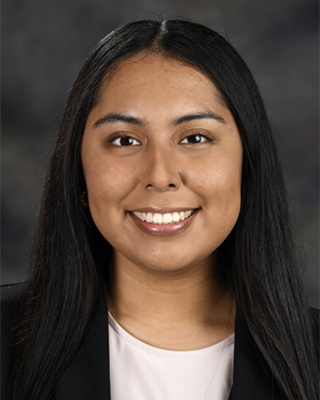
Maira Perez was raised in Sanford, North Carolina and is of Mexican descent, where her roots run deep in the state of Guerrero, Mexico. She is a first-generation college graduate from the University of North Carolina at Chapel Hill where she earned her Bachelor of Science degree in Psychology. Maira joined the National Institute of Environmental Health Sciences (NIEHS) as a STrIDE Fellow (formally known as the NIEHS Diversity IRTA Program). She is a member of the Placental Cell Biology Group within the Reproductive and Developmental Biology Laboratory. The Placental Cell Biology Group focuses on understanding how autophagy controls and regulates environmental stressors on the placenta and pregnancies. Her role has been collecting human placenta tissue, optimizing cell isolation protocols, and processing samples to unravel autophagy placenta-specific pathways that can be explored as therapeutic targets in the future.
Amilcar Rodriguez (Mentor: Guohong Cui, Ph.D.)
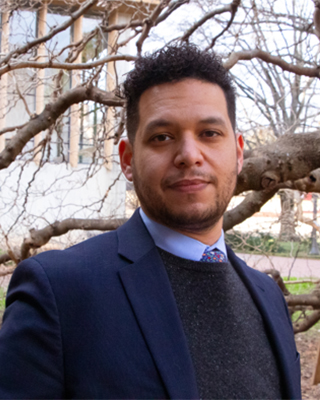
Amilcar Rodriguez was born in Bronx N.Y., and moved to Wendell, NC as a child where he grew up. Amilcar attended Wake Tech Community College to pursue course work in International Relations. Subsequently, he worked many different positions in the culinary industry and as an advanced field satellite technician, what he likes to call, “completing the side-quests.” During this time, Amilcar never lost his curiosity of ethics, international relations, and the sciences, and briefly worked with a security contract global compliance firm where he was inspired by other doctors and researchers to return to school. Amilcar returned to Wake Technical Community College and completed an associate in science. There, he was accepted into the START internship program under the mentorship of Erin Doughney, M.S. and Jackie Swanick, Ph.D. and was introduced to comparative genetic research in addiction through fruit flies. Upon transfer to North Carolina State University, Amilcar continued his pursuit of biological research, primarily in genetics and genomics, and graduated with a degree in Biological Sciences with minors in Global Public Health and Biotechnology. During this time, Amilcar worked in a variety of research projects with various model organisms, most notably endocrinology behavior study with Ring-Tailed Lemurs and a 2-year Honors Capstone Project in evolutionary genetics with yeast under the mentorship of Caiti Heil, Ph.D.
After completion of his degree, Amilcar was accepted to the Genetics and Genomics Academy at North Carolina State University as a College of Veterinary Sciences – Comparative Biomedical Sciences Ph.D. Student. After rotating through several labs and expanding his exposure with various other model organisms, including pigs, Amilcar was invited to work within Cui’s In-vivo Neurobiology Lab as a GPP Ph.D. Student Fellow. Here, Amilcar focuses on examining the influence that the gut-microbiome may have on the development of Parkinson’s Disease, particularly as it applies to the influence of proinflammatory immune response, neurodegeneration, and leukocyte infiltration of the CNS. His greatest inspiration is his 13-year-old daughter, Kalani Rodriguez, and his sister, Coral Rodriguez, is never far away from him. Amilcar’s initial passion for justice and politics never left. As a proud mixed-heritage Hispanic American, Amilcar heads the Society for the Advancement of Chicanos/Hispanics and Native Americans in Science (SACNAS) Chapter at NC State and serves on the Science Policy chair for the Triangle Chapter of Society for Neuroscience.
Preston Siegler (Mentor: Serena Dudek, Ph.D.)
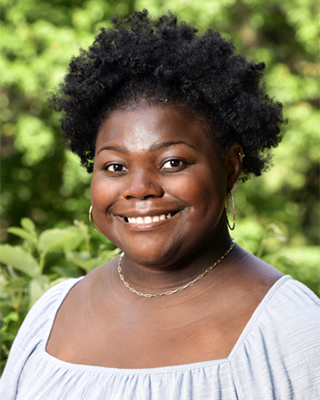
Preston Nicole Siegler was raised in Aiken, South Carolina. She graduated with a B.S. in Biology from Columbia College in Columbia, SC in the winter of 2019. Here, she worked in the lab of Jessica Allen, Ph.D. where she studied how protein L-isoaspartyl methyltransferase aided fruit flies in the recovery from bacterial infections. In the summer of 2021, she completed a post-baccalaureate research program at the Medical University of South Carolina where she worked in the lab of James Otis, Ph.D. Here, she studied how opioid use alters neural circuitry involved in reward-seeking behaviors. Shortly after completing her post-bac, Preston began her graduate education at the University of North Carolina in the Biological and Biomedical Sciences Ph.D. and in the summer of 2022, Preston joined the lab of Serena Dudek, Ph.D. at the NIEHS where she currently investigates how a mouse model of early life stress affects the development of hippocampal area CA2, a brain region involved in social learning, memory, and aggression. She hopes that her research will provide more information on the role that stress at key developmental timepoints affects long-term social behavior and brain development.
Alanna Stewart (Mentor: Paul Wade, Ph.D.)
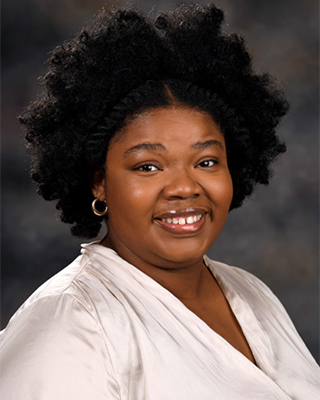
Alanna Stewart was born in Connecticut and graduated high school in Fairfax, Virginia. She received a Bachelor of Science in Biology from Spelman College. During her collegiate tenure, she was a Louis Stokes Alliances for Minority Participation (LSAMP) Scholar and a summer student for UCLA’s Bruins-In-Genomics (B.I.G.) Summer Program. During this time, she studied differential gene expression in Cochliopodium’ reproductive behaviors, resulting in a publication (PMID: 33147262). She joined the NIEHS as a postbaccalaureate STrIDE Fellow in the Epigenetic and Stem Cell Biology Laboratory branch. She is interested in understanding the pathways in which the environment induces epigenetic changes in metabolic diseases such as obesity. Alanna is currently, using cloning techniques and mass spectrometry to examine proteins that are associated with pioneer transcription factor, GATA3.


